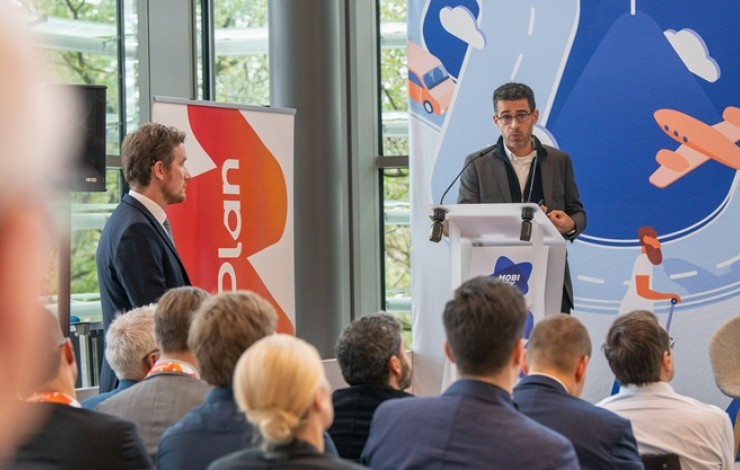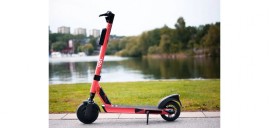During the first edition of Human Capital Europe, which took place on November 26th, 2019, at the ECCL, tens of local and international experts shared their knowledge in a Mobility Summit session. They notably discussed some of the specific projects that are being deployed in Luxembourg in order to tackle the challenges faced daily by thousands of drivers.
Master of Ceremony Patrick Van Egmond (Managing Director, LuxMobility) first welcomed Georges Mischo (Mayor of Esch-sur-Alzette) who officially opened this new and revisited version of Mobility Summit. He first stated that his city is constantly growing and is expected to have more than 40 000 inhabitants in the next 7 years. "Since the early 2000s, several elements have been added to facilitate the mobility of the people living and coming to the city: traffic planning, Vel'oh stations, a wider pedestrian zone, Flexibus and other buses to connect the different parts of the city," added the Mayor. In the future, carsharing solutions will be developed even further and the first neighborhood with no car will be inaugurated.
Antonio Da Palma (Head of Mobility Technologies at Automobile Club du Luxembourg) then took the stage for a presentation entitled "Mobility as a Service in Luxembourg", and presented a service project developed in collaboration with the University of Luxembourg. "Nowadays, automobile clubs are becoming mobility clubs. Therefore, training is necessary to give tricks to mobility managers so that they can handle the problems their employees are facing," explained the mobility expert. The ACL also worked on a "MaaS4All" project with the University: "there are many startups in the shared mobility industry, as we are slowly moving from vehicle possession to sharing, and also from private transportation to shared transportation. We are therefore working on building the right recipe to answer the customers' needs, through this research study". To do so, the experts first need to collect data and make trials in order to fully understand the local market, with the final goal of offering different subscription models that will feed people's needs, depending on their profiles.
"Mobility & Logistics 5.0" was the name of the presentation given by Guido Savi (Public Affairs at FEBIAC Luxembourg). "The mobility of the future leans on digital: it will be less focused on the product and rather on the service," stated Guido Savi at the beginning of his presentation. In Luxembourg, all the automotive federations are working together, which represents a unique opportunity to create the mobility of the future. "In Luxembourg, the personal car remains central, and people keep on using them, therefore creating mobility challenges. The idea is therefore to create a logistics center to store cars, allowing city parking lots to be used as homes, etc," also explained the FEBIAC representative.
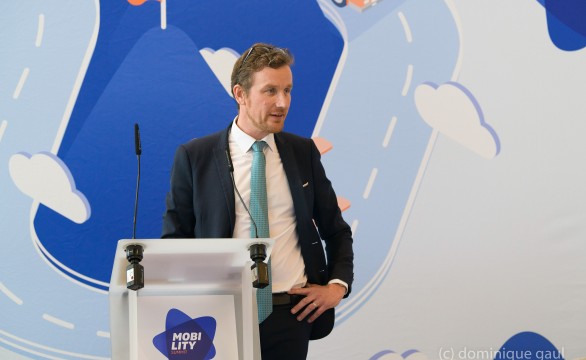
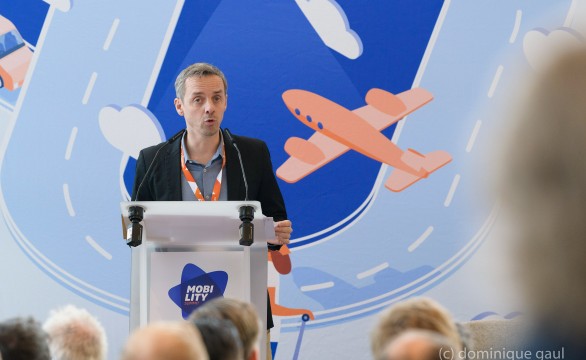
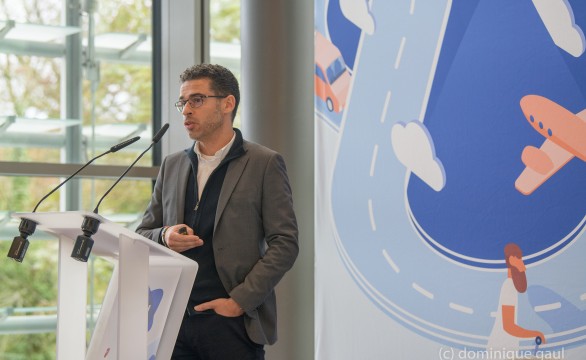
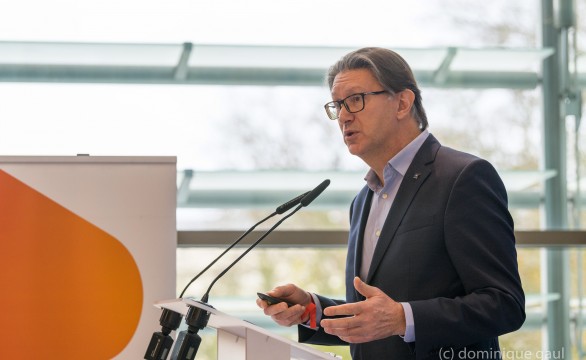
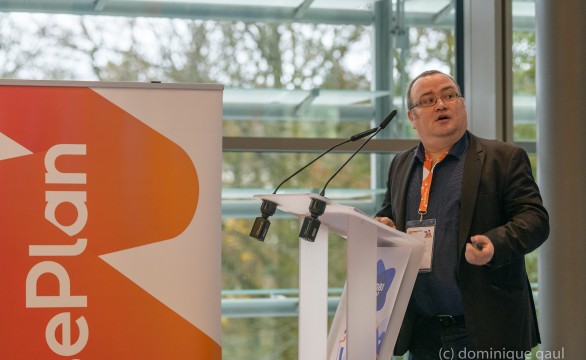
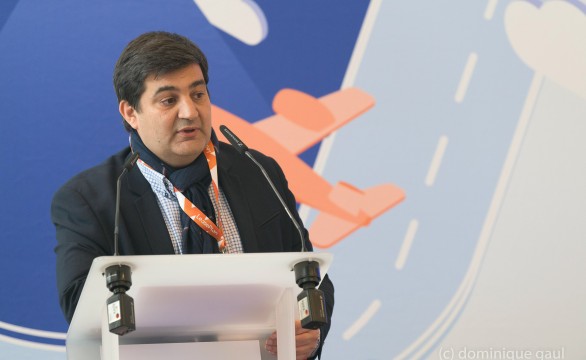
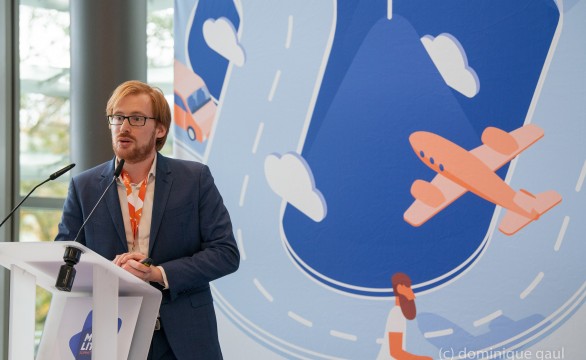
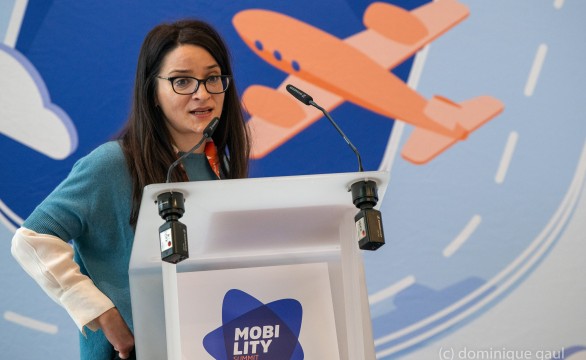
The organizers then had the pleasure to welcome Olivier Klein (Research Scientist at the Luxembourg Institute of Socio-Economic Research (LISER)) who focused on urban development and daily mobility, two key dimensions of sustainable development and well-being. "Housing and daily mobility are among the major concerns of citizens. More and more people decide to move outside of Luxembourg because of housing costs. Moreover, people need more time to commute and reach their workplace. The current challenge is to combine economic growth, sustainable development and citizen's well-being," said Olivier Klein. After sharing figures about mobility and the cross-border labor market, he stated that these challenges have direct consequences on the daily life and well-being of people: long commutes between home and work, an overloaded transport system during peak hours, air pollution, emergence of new urban behaviors, the daily experience of stress in commuting has serious implications for public health, and many more. He concluded his presentation stating that solutions require the involvement of three key players – employees, companies and public authorities – in a win-win approach.
Jerome Stefanello (Mobility Services Director at Flowbird) also shared his expertise during the day and focused on curbside parking in the city in order to facilitate the access. In his presentation, he highlighted the fact that parking is not only a mobility challenge but also a financial challenge, as it deals with payment. "Dealing with these challenges therefore means less traffic and less pollution in the cities. We are working on a pilot project, leveraging all the power of data and digitalization, in order to find new solutions. In this respect, we are answering the needs of the cities," he added.
Aurélien Schuller (Mobility Manager at Carbone 4) focused on "climate and energy transition of mobility: challenges and trends". He started: "in the context of an unprecedented transition towards a low-carbon economy, it is key to assess and improve the carbon performance and the resilience of your business". He then highlighted that the current global challenge is to shift from fossil fuels to avoid severe adverse effects of climate change. "Therefore, achieving carbon neutrality requires to reduce drastically emissions in all sectors, while developing carbon sinks. There are three levers to reduce greenhouse gas emissions of transport: sobriety, efficiency and low carbon," explained Aurélien Schuller. He concluded his presentation by discussing electric cars, who are low-carbon, but only if battery manufacturing and electricity generation are low-carbon…
"Passenger Mobility Statistics- Urban Transport" was the name of the presentation given by Emilia-Maria Iscru (Statistical Officer at European Commission). "The plan for the next decades is to take us to a competitive and resource efficient transport system. Today, managing transport in all European cities remains an important challenge," she commented. She then explained that there was no legal obligation to report road passenger transport data at the level of the European Union but that Eurostat is supporting Member States to develop statistical tools for collecting mobility data. "A study is going to be published in January next year. Today, there are differences from one country to another, therefore data has to be analyzed with caution and we need to be cautious when drawing conclusions," she added, before asking: "what does it take to make public transport a preference?"
Anne Reiser & Alexandre Keilmann
Photos: Dominique Gaul



